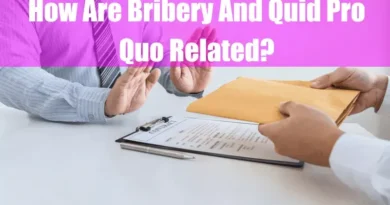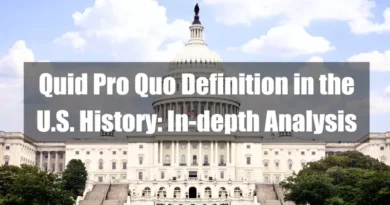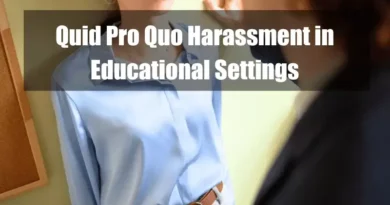Are Quid Pro Quo Contributions Solicitations?
Takeaways
| Key Points |
|---|
| Quid pro quo contributions can indeed qualify as solicitations, especially in fundraising settings where donors receive something in exchange for their donation. |
| A quid pro quo contribution is a donation made by a contributor to a charity in exchange for goods, services, or other benefits. This means that the charity receives a contribution, but the donor also receives something in return, which affects how much, if any, of the contribution is tax-deductible. |
| Under U.S. tax law, a solicitation occurs when a charity actively seeks funds from patrons, which can happen through various means, such as direct mail campaigns, online fundraising, events, and personal requests. |
| A quid pro quo contribution in the context of solicitation thus refers to a scenario where a charity requests funds and offers something in return. |
| The I.R.S. requires clarity in how these contributions are communicated and calculated for tax purposes. Charities must follow specific I.R.S. rules for transparency. |
| For instance, if a donor pays for a gala ticket that includes a meal or entertainment, only the amount exceeding the fair market value of the benefits provided is tax-deductible. |
| Charities must inform donors of this deductible portion and offer a good-faith estimate of the value of any goods or services received, particularly when contributions exceed $75. |
| Failure to comply with these requirements may lead to penalties for the charity. |
| Proper acknowledgment of receipts and clear communication help ensure compliance with both federal and state laws, protecting the organization’s credibility and tax-exempt status while providing accurate information to donors regarding their deductions. |
Introduction
Quid Pro Quo Contribution is a payment a donor gives to a charity that covers both a donation and something the charity provides in return, like goods or services. For instance, if a donor gives a charity $100 and receives a concert ticket worth $40, the donation portion of the payment is $60. Because the total amount given ($100) is more than $75, the charity must provide a disclosure statement, even though the deductible part of the donation is not over $75. The organization may face a penalty if it fails to provide this disclosure.
Disclosure Statement
The written disclosure statement that the charity gives to the donor must:
- Inform the donor that their deductible contribution for federal income tax purposes is limited to the amount they gave minus the fair market value of any goods or services received from the charity.
- Give the donor a good faith estimate of the fair market value of the goods or services they received.
The charity should provide this statement either when asking for the contribution or when they actually receive it. If the statement is given during solicitation, it does not need to be given again when the contribution is received.
A disclosure statement is not required if:
- The goods or services given to the donor have minimal value, as described in Revenue Procedures 90-12 and 92-49.
- The payment to the charity does not have a donative element, such as when a person buys an item from a museum gift shop.
- The only benefit the donor receives is an intangible religious one provided by an organization exclusively for religious purposes. This benefit must generally not be something available in a typical commercial transaction. For example, admission to a religious ceremony where no entry fee is usually charged counts as an intangible religious benefit. However, tuition, travel services, or consumer goods payments do not fall under this category.
A disclosure statement is also not required if a donor pays $75 or less each year and receives only annual membership benefits that include:
- Rights or privileges, like free or discounted admission or parking, that the member can use throughout the year (excluding the right to purchase college sports tickets).
- Access to member-only events where the per-person cost falls within the low-cost guidelines described in Revenue Procedures 90-12 and 92-49 (adjusted for inflation).
Good Faith Estimates of Fair Market Value
A charity can use any reasonable method to estimate the fair market value (FMV) of goods or services provided to a donor as long as it’s done in good faith. The organization can estimate FMV based on similar items if the goods or services are not sold commercially. Here are some examples:
- Example 1: A charity offers a one-hour tennis lesson with a professional for a $500 donation. Since the tennis professional charges $100 for a one-hour lesson, the FMV is estimated at $100.
- Example 2: A museum lets a donor host a private event in one of its rooms for a $50,000 donation. A similar space, like a hotel ballroom with comparable features, rents for $2,500, so the FMV is estimated at $2,500.
- Example 3: A charity provides an evening museum tour led by a well-known artist for a $1,000 donation. Since the artist doesn’t usually offer tours, and the museum tours are generally free, the FMV estimate is $0.
Penalty for Failing to Disclose
Suppose a charity fails to disclose a quid pro quo contribution of more than $75. In that case, it faces a $10 penalty per contribution, up to a maximum of $5,000 per event or mailing. The penalty can be avoided if the charity can show that the failure was due to reasonable cause.
I.R.S. Requirements: An Overview of Rev. Proc. 90-12
The I.R.S. Revenue Procedure 90-12 establishes that charities must inform patrons about the tax-deductible portions of their donations when they receive goods or services in return. This procedure addresses both the deductibility of donations and the charitable organization’s responsibility to provide clear, accurate information regarding tax deductions. Let’s explore the major elements of Rev. Proc. 90-12 in detail.
Purpose of Rev. Proc. 90-12
The purpose of Rev. Proc. 90-12 is to help charitable organizations inform patrons about their contributions’ deductible and non-deductible portions in quid pro quo situations. This procedure sets guidelines for calculating and disclosing the fair market value (FMV) of benefits received by contributors, allowing patrons to understand their Federal income tax liability accurately.
Guidelines for Determining Deductibility
- Full Deduction for Insubstantial Benefits:
- If a donor’s benefit from a contribution is insubstantial, the entire contribution may be deductible. A benefit is considered insubstantial if it is below a certain threshold:
- 2% of the contribution or $50 (whichever is less).
- Low-cost items such as keychains, bookmarks, and other small items may be treated as insubstantial if their value is low relative to the contribution.
- If a donor’s benefit from a contribution is insubstantial, the entire contribution may be deductible. A benefit is considered insubstantial if it is below a certain threshold:
- Requirements for Full Disclosure:
- Charities must provide patrons with clear statements on deductible amounts. For fundraising materials and receipts, the charity must declare:
- The fair market value of any benefit provided.
- The non-deductible portion of the contribution if a substantial benefit is received.
- If determining an exact FMV is impractical, charities are allowed to use a reasonable estimate.
- Charities must provide patrons with clear statements on deductible amounts. For fundraising materials and receipts, the charity must declare:
- Fundraising Campaign Standards:
- A charity’s fundraising campaign should disclose whether a portion of the contribution is non-deductible. For instance, campaigns may include tickets, broadcast solicitations, and receipts that specify deductible and non-deductible amounts.
- Examples of Deductibility Applications:
- The I.R.S. provides examples to illustrate the deductibility rules. For example, if a zoo offers lapel pins with a nominal value for a $15 contribution, the entire donation is deductible. However, if multiple low-cost items are given, the charity must assess if the cumulative cost of these items remains below the low-cost threshold for full deductibility.
Additional Guidelines: Rev. Proc. 92-49 on Low-Cost Unordered Items
Building upon Rev. Proc. 90-12, Rev. Proc. 92-49 outlines specific conditions for charities offering low-cost, unordered items in quid pro quo contributions. Here are the key takeaways:
- Unordered Low-Cost Items:
- Charities may distribute unordered items such as greeting cards or bookmarks during solicitations, and these items can be considered insubstantial under certain conditions. The patron must be told they may keep the item without contributing. The entire donation may still be deductible if the items are low-cost per section 513(h)(2) of the I.R.C.
- Cost Thresholds for Deductibility:
- The I.R.S. specifies cost limitations for low-cost items distributed during fundraising. For instance, unordered items sent to patrons must be within the low-cost limit, and the total cost to the charity of all such items given to a single patron should not exceed the adjusted low-cost article limit, which is updated annually.
- Examples Illustrating Low-Cost Item Deductibility:
- An example the I.R.S. provides might be a charity broadcasting organization that sends patrons a listener’s guide and a coffee mug in exchange for contributions. If the aggregate cost of these items exceeds the low-cost threshold, only a portion of the contribution is deductible.
Implications of Quid Pro Quo Solicitation Guidelines for Charitable Organizations
These guidelines aim to improve transparency and accountability in charitable fundraising. Charities must navigate the tax-deductibility of contributions, ensuring accurate solicitation practices that reflect Congressional intent for the I.R.S. to monitor clear communication to taxpayers on deductibility.
- Reducing Tax Errors: By clarifying what portions of donations are deductible, the I.R.S. reduces taxpayer errors and potential issues related to the charitable contribution deduction on tax returns.
- Enhanced Transparency in Fundraising: Charities are encouraged to follow these I.R.S. procedures to ensure donor confidence and improve organizational credibility by aligning with federal guidelines on solicitation and deductibility.
Conclusion
Quid pro quo contributions, when part of a solicitation, involve I.R.S. guidelines requiring charities to disclose the deductible and non-deductible portions of donations, particularly when patrons receive benefits in return. Rev. Proc. 90-12 and Rev. Proc. 92-49 provide essential guidance on fair market value, insubstantial benefits, and low-cost unordered items, helping charities and donors maintain tax compliance.
FAQ
What is a “Quid Pro Quo Contribution”?
A quid pro quo contribution occurs when a donor makes a payment to a charitable organization and receives goods or services in return. For example, if a donor gives $100 to a charity and receives a concert ticket valued at $40, the deductible portion of the contribution is $60. The IRS mandates that charities provide a written disclosure for such contributions exceeding $75, informing donors that only the amount exceeding the fair market value of the received goods or services is tax-deductible.
What constitutes “Fair Market Value” in the context of charitable contributions?
Fair Market Value (FMV) refers to the price at which a property or service would change hands between a willing buyer and a willing seller. In quid pro quo contributions, charities must provide a good faith estimate of the FMV of the goods or services offered in exchange for a donation. This ensures donors can accurately determine the deductible portion of their contribution.
What is a “Written Disclosure Statement” for quid pro quo contributions?
A Written Disclosure Statement is a document that charitable organizations are required to provide to donors who make quid pro quo contributions over $75. This statement must inform the donor that the deductible amount for federal income tax purposes is limited to the excess of the contribution over the FMV of goods or services received and a good faith estimate of that FMV must be provided.
What does “Substantiation” mean in the context of charitable contributions?
Substantiation refers to the documentation that a donor must obtain to support a charitable contribution deduction on their federal income tax return. Quid pro quo contributions include obtaining a written acknowledgment from the charity detailing the amount of the contribution and the FMV of any goods or services received.
How does “Consideration” apply to quid pro quo contributions?
In the context of quid pro quo contributions, consideration refers to the goods or services provided by the charity in exchange for a donor’s contribution. The value of this consideration must be determined and disclosed to the donor to establish the tax-deductible portion of the contribution.
What is the “De Minimis” rule in charitable contributions?
The de minimis rule pertains to benefits provided to donors that are of minimal value. If the value of the benefits is so small as to be insignificant, the full amount of the donor’s contribution may be deductible, and the charity may not be required to provide a disclosure statement. Specific thresholds and guidelines are outlined in IRS Revenue Procedures 90-12 and 92-49.
How is “Membership Benefits” defined concerning quid pro quo contributions?
Membership benefits refer to rights or privileges that a donor receives in exchange for a payment, such as free or discounted admission to events, parking, or preferred access to goods or services. If these benefits are insubstantial or consist of intangible religious benefits, the full amount of the payment may be deductible. However, if the benefits exceed insubstantial value, the charity must provide a disclosure statement detailing the FMV of the benefits.
What is the “Token Exception” in quid pro quo contributions?
The “Token Exception” allows charities to provide donors with items of insubstantial value without affecting the tax deductibility of the contribution. According to IRS guidelines, if a donor makes a payment to a charity and receives goods or services that have a fair market value (FMV) not exceeding the lesser of 2% of the payment or $113 (adjusted annually for inflation), the benefits are considered insubstantial. Additionally, if the donor’s payment is at least $56.50 and the only items provided bear the organization’s name or logo (e.g., calendars, mugs, posters), and the cost of these items is within the “low-cost articles” limit of $11.30 (also adjusted annually), the benefits are deemed insubstantial. In such cases, the full amount of the donor’s contribution is deductible, and the charity is not required to provide a written disclosure statement.
How does the “Membership Benefits Exception” apply to charitable contributions?
The “Membership Benefits Exception” pertains to annual membership benefits provided by a charity in exchange for a payment of $75 or less. Under this exception, certain rights or privileges are considered insubstantial and do not reduce the donor’s charitable deduction. These benefits may include free or discounted admissions to the organization’s facilities or events, discounts on purchases from the organization’s gift shop, free or discounted parking, and free or discounted admission to member-only events where the cost per person is within the “low-cost articles” limit. Since these benefits are deemed insubstantial, the charity is not required to provide a written disclosure statement, and the donor can deduct the full amount of the membership payment.
What are “Intangible Religious Benefits” in the context of charitable contributions?
“Intangible Religious Benefits” refer to benefits a religious organization provides that are not tangible and generally not sold in commercial transactions outside the donative context. Examples include admission to religious ceremonies or participation in other religious observances. When a donor receives only intangible religious benefits in exchange for a contribution, the charity is not required to provide a written disclosure statement detailing the value of these benefits. Furthermore, the full amount of the donor’s contribution may be tax-deductible.
What is the “Good Faith Estimate” requirement for charities providing goods or services in return for contributions?
When a charity provides goods or services in exchange for a contribution exceeding $75, it must furnish the donor with a written disclosure statement that includes a “Good Faith Estimate” of the fair market value (FMV) of those goods or services. This estimate should reflect the price at which the goods or services would be sold in an open market. This requirement aims to inform donors of the value of the benefits they received, enabling them to determine the deductible portion of their contribution accurately. The charity must provide this disclosure either at the time of solicitation or upon receipt of the contribution.
What are the “Disclosure Requirements” for charitable organizations regarding quid pro quo contributions?
Charitable organizations are obligated to provide a written disclosure statement to any donor who makes a quid pro quo contribution exceeding $75. This statement must inform the donor that the deductible amount for federal income tax purposes is limited to the excess of the contribution over the fair market value (FMV) of goods or services received. Additionally, the statement must include a good faith estimate of the FMV of the goods or services provided. The disclosure ensures that donors are aware of the tax-deductible portion of their contribution. Failure to provide the required disclosure may result in penalties for the charitable organization.
What penalties may a charity face for failing to provide the required written disclosure for quid pro quo contributions?
If a charitable organization fails to provide the required written disclosure statement for a quid pro quo contribution exceeding $75, it may incur a penalty imposed by the IRS. The penalty is $10 per contribution, with a maximum of $5,000 per fundraising event or mailing. However, the charity can avoid the penalty if it can demonstrate that the failure was due to reasonable cause. To ensure compliance and avoid potential penalties, charities should establish procedures to provide timely and accurate disclosure statements to donors as required by IRS regulations.
How does the IRS define “Insubstantial Value” concerning donor benefits in quid pro quo contributions?
The IRS considers benefits provided to donors as having “Insubstantial Value” if they meet specific criteria, allowing donors to deduct the full amount of their contribution. Benefits are deemed insubstantial if:
- The fair market value (FMV) of the benefits does not exceed the lesser of 2% of the payment or $113 (adjusted annually for inflation).
- The payment is at least $56.50, and the only items provided bear the organization’s name or logo (e.g., calendars, mugs, posters), with the cost of these items within the “low-cost articles” limit of $11.30 (adjusted annually).
When benefits are of insubstantial value, the charity is not required to provide a written disclosure statement, and the donor’s entire contribution is tax-deductible.
Citations
- Charitable contributions: quid pro quo contributions | Internal Revenue Service. (n.d.). https://www.irs.gov/charities-non-profits/charitable-organizations/charitable-contributions-quid-pro-quo-contributions
- Internal Revenue Service. (1990). Rev. Proc. 90-12. In 1990-1 C.B. https://www.irs.gov/pub/irs-tege/rp_1990-12.pdf
- Jones, D. W., Irving, A., Exempt Organizations Technical Division, & Office of the Assistant Chief Counsel (Income Tax and Accounting). (1992). Rev. Proc. 92-49, 1992-26 I.R.B. 18, 1992-1 C.B. 987. https://www.irs.gov/pub/irs-tege/rp92_49.pdf









